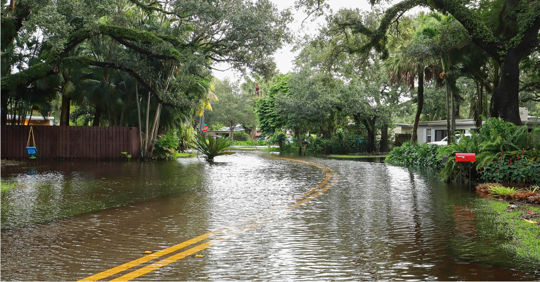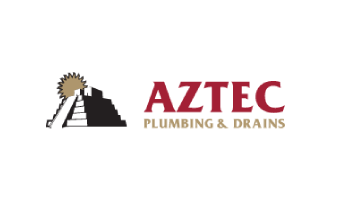How Does Flood Water Affect My Plumbing System?

Flood Water and Your Home’s Plumbing System
Heavy rains and severe weather can lead to flooding, which can devastate your home—including your plumbing system. While you may know that flood water is dangerous, you may not know precisely how it can damage your plumbing. Our experts want to discuss how flood water can negatively affect your home’s plumbing system and how to prevent the damage from worsening.
How Flood Water Can Cause Damage to Your Home
Flood water can damage your home’s plumbing system in several ways:
- The water can saturate the soil around your foundation, which can lead to cracks in your foundation and allow water to enter your home.
- Flood water can seep into your home through cracks in the walls or unsealed openings, such as doors and windows. Once inside, the water can damage your walls, floors, ceilings, insulation, and electrical wiring.
- Flood water can enter sewer lines and septic tanks, contaminating them with sewage and other bacteria. This contaminated water can come back into your home through toilets, sinks, and bathtubs.
- Flood water can damage or destroy your appliances and plumbing fixtures, such as washing machines, dishwashers, refrigerators, faucets, and toilets.
How Flood Water Affects Your Pipes
Flood water can damage your pipes in many ways. Some of the most common forms include rust, corrosion, and clogs.
Rust and Corrosion
Flood water is filled with contaminants such as debris and harmful chemicals. The added amount of harmful particles can cause corrosion on your pipes. If left unattended, this can cause leaks to form and can eventually cause the pipes to burst.
Clogs
During a flood, the water stirs up extra sediment that will make its way into your plumbing system. If enough debris enters your pipes, clogs will begin to form. The clogs can cause your pipes to burst if left unattended.
How Fresh and Salt Water Affects Your Plumbing
Salt Water Effects
If your home is located in an area that is susceptible to hurricanes or other tropical storms, there is a chance that saltwater could enter your plumbing system during a flood. Saltwater is more aggressive than fresh water and can cause corrosion, which will lead to leaks over time. In addition, salt water is conductive, so if it comes into contact with electrical wiring, it could cause a fire.
Fresh Water Effects
Freshwater floods are more common than saltwater floods, but they can still cause significant damage to your home’s plumbing system. When left standing for too long, fresh water can become stagnant and start to grow bacteria. This poses a severe health risk to you and your family, so removing any standing water from your home as soon as possible is important. In addition, freshwater can erode concrete and degrade metal pipes over time, so it’s equally as important to have your home’s plumbing system inspected by a professional if you’ve also experienced flooding from freshwater.
How to Prepare Your Home For a Flood
Flooding is a serious problem that can disastrously affect your home—including your plumbing system. If you live in an area susceptible to flooding, it’s essential to take steps to protect your home.
Protecting Your Home From a Flood
- Seal your doors and windows
- Install a sump pump
- Know how to shut off the power to your home
If you experience flooding in your home, contact a professional plumber immediately. An experienced plumber will likely use video camera inspections to assess the internal damage to your pipes and pinpoint spots where leaks may begin to form.
Protect Your Pipes
If your home has been affected by flooding, our experts at Aztec Plumbing & Drains have the knowledge and equipment to assess the damage. Contact us online or give us a call 239-932-2959 so we can help fix the problem!
Learn More About Flooding
Contact Us
Contact Us
"*" indicates required fields


